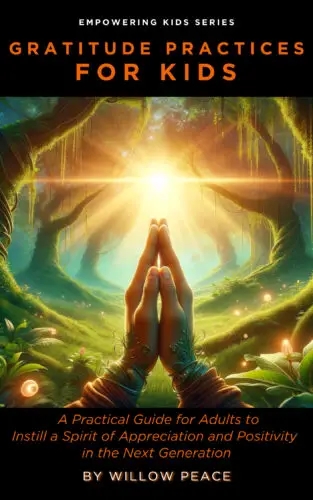June 4th, 2025
Staff Writer for Wake Up World
Ever find yourself scrolling through your phone, hopping from one app to another, unable to stick with a single task? It’s not just you. Science confirms our ability to focus is slipping, especially in the digital world. Drawing on the University of California’s eye-opening article Can’t pay attention? You’re not alone [1]. This piece explores the decline in human attention spans, backed by compelling research and sprinkled with fascinating insights. Let’s dive into the science and discover how to reclaim your attention.
Why You Can’t Stay Focused
Research from Dr. Gloria Mark at the University of California, Irvine, shows that in 2003, people spent about 2.5 minutes on a screen before switching tasks. By 2012, that dropped to 75 seconds, and recent data clocks it at just 47 seconds [1]. “We’re seeing a significant decline in how long people can focus on a single screen,” Mark shares in her book Attention Span [2]. This isn’t just a feeling—our brains are juggling more than ever.
Kids face an even tougher battle. A study in Frontiers in Cognition found that children’s attention spans drop by 27.41% during tasks, tied to symptoms of inattention [3]. With screens everywhere, staying focused feels like a losing game for many.
The Science of Shrinking Attention
The numbers don’t lie. Mark’s research, spanning nearly two decades, uses tools like stopwatch tracking and computer logging to measure how we switch tasks. “The average time on a screen before switching has gone from 150 seconds to 47 seconds,” she explains in an interview [4]. Beyond individual focus, our collective attention is also fading. A Nature Communications study looked at Twitter trends, Google searches, and even movie ticket sales, finding that topics hold our interest for shorter periods due to information overload [5]. “We’re bombarded with content, and our attention is fragmenting,” the researchers note [5].
Attention Across the Ages
Your age shapes how you focus. The Frontiers in Cognition study tested 262 people aged 7 to 85 and found that young adults hold attention longest, averaging 76 seconds, while kids manage just 29.61 seconds [3]. “Children showed a significant decline in attention span over the task,” the study reports, linking this to inattention symptoms [3]. Older adults average 67 seconds, showing that focus challenges shift across life stages [3]. Kids, in particular, seem hit hardest by our distraction-heavy world.
Here’s a wild fact: the study found children’s attention decline mirrors ADHD-like patterns, even in those without a diagnosis [3]. This hints that our environment might be rewiring focus for everyone, not just kids.
The Collective Attention Collapse
It’s not just you—society’s focus is fraying too. The Nature Communications study calls this “social acceleration,” where topics trend briefly before fading fast [5]. For instance, Twitter hashtags from 2013 to 2016 lost steam quicker than earlier trends, a pattern echoed in Google searches from 2010 to 2018 [5]. The Guardian sums it up: “Global attention span is narrowing due to the abundance of information” [7]. This creates a cycle where our individual and collective focus keeps shrinking.
Fun tidbit: the myth that our attention span is shorter than a goldfish’s (8 seconds) isn’t true, as Dr. Gemma Briggs debunked [6]. But 47 seconds on a screen? That’s still a wake-up call!
Why This Hits Home
A fading attention span isn’t just a quirky stat—it messes with your work, relationships, and peace of mind. Constant task-switching, what Mark calls “attention residue,” leaves you drained and less effective [2]. Whether you’re a student cramming for exams or a parent juggling tasks, this can feel like spinning plates. Research from ScienceDaily adds that information overload pushes our brains to skim rather than dive deep [8]. Over time, this makes sustained focus tougher, but there’s hope—you can retrain your brain.
5 Ways to Boost Your Focus
You can fight back against distraction. Here are five science-backed tips to strengthen your attention and thrive:
1. Embrace Single-Tasking
Mark suggests focusing on one task for 20 minutes to build mental stamina [2]. Set a timer, mute notifications, and dive in. This helps your brain lock in.
2. Create a Focus-Friendly Space
Clear a spot free of screens for deep work. Studies show removing digital triggers boosts focus [3]. A quiet desk or cozy corner works wonders.
3. Take Smart Breaks
Mark’s research highlights “productive breaks” to reset attention [4]. Step away for 5–10 minutes to stretch or breathe, avoiding screens to recharge fully.
4. Ditch Multitasking
Juggling tasks splits your focus, as the Nature study shows [5]. Tackle one thing at a time to boost quality and cut stress.
5. Try Mindfulness
A 10-minute daily meditation can sharpen focus. Research links mindfulness to better attention control, countering digital overload [8].
Take Back Your Attention
The science paints a clear picture: our attention spans are shrinking, from 2.5 minutes in 2003 to 47 seconds today [1]. Yet, the debate keeps us grounded—focus is complex, and context matters [6]. By understanding the research and taking small steps, you can rebuild your focus and thrive in a distracted world. Start with one tip today, and watch your clarity grow.
Dropdown – Article References
-
Can’t pay attention? You’re not alone – https://www.universityofcalifornia.edu/news/cant-pay-attention-youre-not-alone
-
Attention Span by Gloria Mark, PhD – https://gloriamark.com/attention-span/
-
Quantifying attention span across the lifespan – https://pmc.ncbi.nlm.nih.gov/articles/PMC10621754/
-
Q&A with Gloria Mark, Author of Attention Span – https://annieduke.substack.com/p/q-and-a-with-gloria-mark-author-of
-
Accelerating dynamics of collective attention – https://www.nature.com/articles/s41467-019-09311-w
-
Busting the attention span myth – https://www.bbc.com/news/health-38896790
-
Global attention span is narrowing, study reveals – https://www.theguardian.com/society/2019/apr/16/got-a-minute-global-attention-span-is-narrowing-study-reveals
-
Abundance of information narrows attention span – https://www.sciencedaily.com/releases/2019/04/190415081959.htm
About the author
John Patterson is an avid writer and researcher who delves into the latest scientific research. With an insatiable curiosity, he translates complex concepts into accessible narratives, allowing readers to embark on a journey of discovery. John bridges the gap between experts and the public through his work, igniting curiosity and inspiring meaningful conversations about scientific breakthroughs.
Still Trading Time for Money? There’s a Better Way.
You’ve always known the system was broken. Working harder doesn’t equal more freedom—it just keeps you stuck in someone else’s game.
It’s time to opt out.
The Freedom Formula isn’t another get-rich-quick scheme. It’s a proven business model backed by a 50-year-old company, designed for people who refuse to be trapped by outdated financial systems.
? Earn high-ticket commissions (57%+ per sale) with a business that actually helps people
? Leverage a system where our team closes your first $100K in sales for you
? Unlock passive, recurring income—so you can live life on YOUR terms
This is about sovereignty, not survival. No bosses. No begging for raises. No soul-sucking work that drains your energy and purpose.
Automation and AI are making traditional jobs obsolete. Most people will wait and hope for the best. But you? You see the shift happening.
Watch the FREE masterclass now and take back control of your future.
If you’ve found value in our articles, we invite you to support the release of our brand-new book, “Gratitude Practices for Kids: A Practical Guide for Adults to Instill a Spirit of Appreciation and Positivity in the Next Generation.“
“Gratitude Practices for Kids” brings together over 25 innovative and accessible practices designed to enhance gratitude in everyday life. This comprehensive guide is backed by 17 scientific studies, ensuring each concept is grounded in research, underscoring our commitment to nurturing growth, emotional intelligence, and positive interactions between adults and children.
We encourage you to opt for the paperback version to celebrate this new release. Dive into its fresh pages away from digital distractions, allowing you to immerse yourself in the transformative practices it offers.
Over recent years, Wake Up World has faced significant online censorship, which has impacted our financial ability to operate. Moving into book publishing represents a strategic step to secure the ongoing funds needed to continue our mission. By purchasing Gratitude for Kids, you help us keep our content free and accessible to everyone, avoiding needing a paywall. With over 8,500 articles published in the last 13 years, we remain dedicated to keeping our valuable content open to all.










